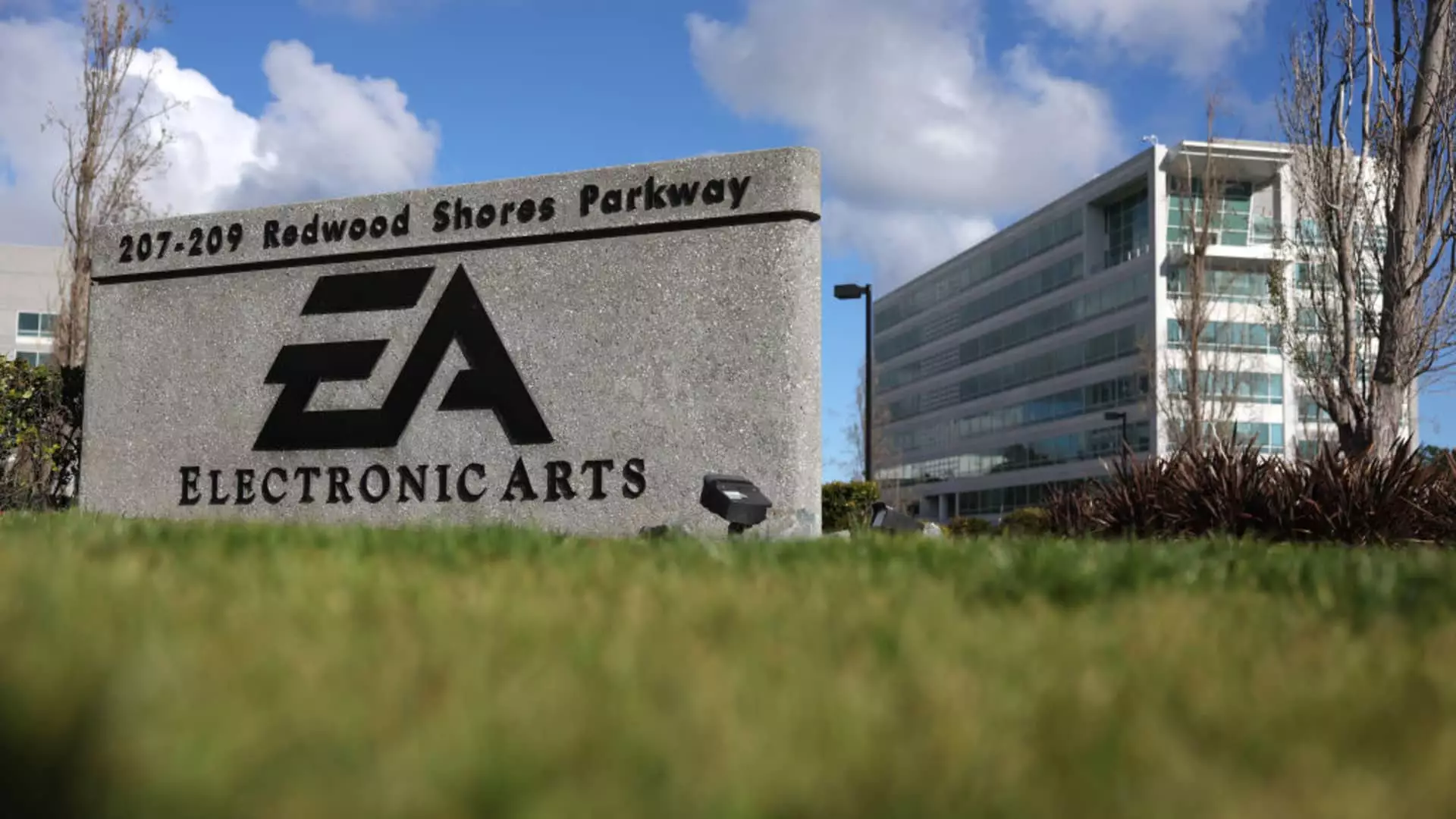In a significant turn of events, Electronic Arts (EA) witnessed a drastic decline in its stock value, marking its steepest drop since 1999, as investor confidence plummeted following the announcement of diminished bookings guidance for the fiscal year. The company’s shares fell nearly 19% to approximately $115.86, as the financial markets reacted to disappointing projections stemming largely from setbacks in the company’s long-standing soccer video game franchise. This downturn not only highlights the volatility of tech-driven stocks but also signals deeper issues within one of the gaming industry’s iconic brands.
On Wednesday, EA revealed its adjusted net bookings estimates, projecting approximately $2.215 billion for the fiscal third quarter, a decline from the earlier forecast of $2.4 billion to $2.55 billion. This revision raised eyebrows in the investment community, particularly given the company reported revenues of around $1.88 billion for the same period, alongside diluted earnings per share of $1.11. Such figures suggest a troubling trend, as expectations for iconic franchises like Dragon Age and EA Sports FC fell dramatically short, indicating that the company may be struggling to meet shifting consumer demands.
Industry analysts, including those from Roth Capital Partners, characterized EA’s earnings preannouncement as a “big stumble.” This phrase starkly underscores the gravity of the situation, reflecting concerns that EA’s strategic direction may be misaligned with market realities. Furthermore, with Roth maintaining a hold rating on the stock, the commentary serves as a transparent signal of caution for investors evaluating EA’s future prospects.
At the heart of EA’s challenges lies its soccer gaming franchise, which has been a cornerstone of its portfolio since 1993 under the FIFA branding. The departure from FIFA in 2022 has seemingly triggered an identity crisis for EA Sports, leading to a decline in player engagement and revenues. Results showed that global football sales are expected to decrease year-over-year, exacerbating the strain on live services bookings—one of EA’s key revenue streams.
The disappointing player figures for Dragon Age, with only 1.5 million players reported for the quarter—which represents a staggering 50% drop relative to expectations—further compound the narrative of underperformance. Such trends indicate a possible shift in consumer interests or intense competition from other gaming titles.
As EA prepares to disclose its full third-quarter results on February 4, all eyes will be on the company’s strategic response to these financial revelations. The planned update will be critical in assessing whether EA can regain stability and trust among stakeholders. With upcoming titles likely to impact sales forecasts, investors are left to ponder the company’s capacity to navigate these choppy waters as it seeks to recover from a tumultuous fiscal landscape. This stock drop is not merely a temporary setback but rather a signal of a potential redefinition necessary for EA’s future in the dynamic gaming industry.

